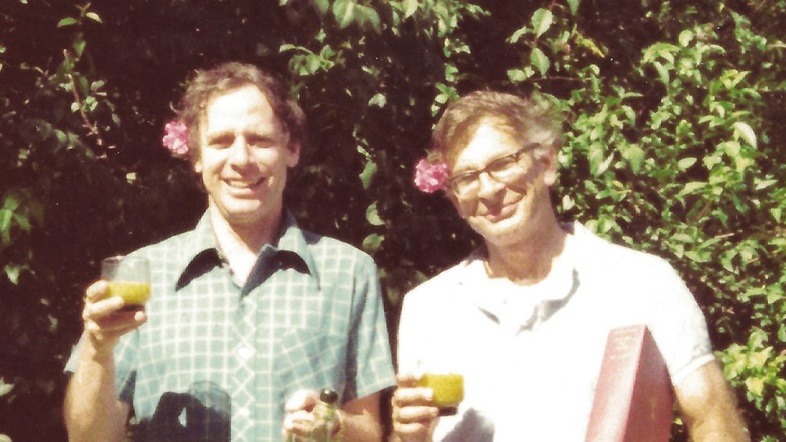
Amos Tversky and Daniel Kahneman toast to their partnership in the 1970s. by Vanity Fair (CC BY 2.0)
A book recommendation by Claudia Knod
It is in these days of alternative facts and fake news that we become more and more sensitive for the truth. What is true? How can we find out what is and whats isn’t? Whom can we trust?
Michael Lewis’ most recent book “The Undoing Project. A Friendship that changed the world” is about the scrupulous search for facts and truth and – neatly separated from this – about their interpretations.
The book tells the story of the friendship between psychologists Amos Tversky and Daniel Kahneman, both ingenious scientists. In 2002 – Tversky had already been dead for 6 years – Kahneman was rewarded the Nobel Prize in Economics for their shared insights which have probably changed our view of human decision making forever.
Kahneman and Tversky’s work on heuristics in judgment and decision-making laid the foundation for what we nowadays call Behavioural Economics.
One of the famous Tversky/Kahnemann experiments is about human choices when combating a deadly epidemic which was expected to kill 600 people. Two alternative programs were proposed. Program A promised that 200 people would be saved. Program B offered a one third probability that everyone would be saved and a two thirds probability that no one would be saved. Respondents overwhelmingly chose Program A, preferring to save 200 lives rather than gamble on the one third chance of saving 600 lives.
The researchers found that one of the major determinants for participants preference was the phrasing of the program outcomes. Participants were shown to behave more risk seeking when the outcome of the program was phrased in a “live saving” fashion and on the contrary to behave more risk averse when the program was phrased in a “life losing” fashion (directly mentioning the prospect of death).
Tversky/Kahnemann’s research delivered evidence toward the fact that human decision making is substantially influenced by more than rational facts. This finding challenged the common perception in the 1970s that human beings, often referred to as homo economicus, was a consistently rational agent.They also appreciated that mankind has a natural desire for stories. It’s the type of story, i. e. the context, which drives the decision; it is not the rational statistically proven truth.
Frequent readers of our blog will be aware that this is not the first time we write on the subject of Behavioural Economis; in fact it is one of our favourite theories and interested readers may find an interesting toolkit and and infographic here: download toolkit here, download infographic here).


